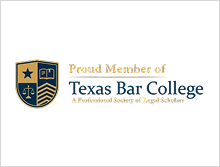Justin Wilson
Senior Attorney
We Offer Complimentary Consultations
If you are facing DWI, assault, sex crime, or other criminal charges, get in touch with My Dallas Criminal Lawyer to learn about your legal options.

My Dallas Criminal Lawyer » Tampering with Evidence
Tampering with evidence or presenting false evidence in a criminal investigation or official government proceeding may constitute a crime. Although it might make sense for a person who becomes a suspect to destroy or conceal evidence that prosecutors might use against them, doing so can constitute a separate criminal offense.
When you face charges of tampering with evidence or presenting false evidence in a Dallas investigation, you need dedicated, knowledgeable legal counsel to help you minimize the potential consequences of an arrest or conviction. Let an experienced Dallas tampering with evidence defense lawyer from My Dallas Criminal Lawyer level the playing field so you can stand up for your rights and reputation in the criminal justice system. Contact our firm today for an initial case review with our legal team to discuss how we can help you fight to protect your freedom and future from the adverse consequences of a charge of tampering with evidence in Dallas.
AWARDS AND ACHIEVEMENTS









If you face charges of tampering with evidence, an experienced criminal defense lawyer can make a difference in the outcome of your case, helping you secure a better result that allows you to move on with your life. Choose a dedicated lawyer from My Dallas Criminal Lawyer to represent your interests because:

Under Texas law, a person can commit a crime if, knowing that the government has a pending investigation or official proceeding, they:
A person can also commit an offense if they:
Altering, destroying, or concealing a record, document, or thing with the intent to impair its usability as evidence constitutes a third-degree felony unless the tampering involves a human corpse, in which case the offense becomes a second-degree felony. Observing and failing to report the existence and location of a human corpse to law enforcement constitutes a Class A misdemeanor.
Examples of conduct that may result in charges of tampering with or fabricating evidence include:
Common questions our clients have when facing prosecution for charges of tampering with evidence in Dallas include:
The potential for receiving a jail or prison sentence after conviction for tampering with evidence may depend on various factors, including prior criminal history, the severity of the offense, and the defendant’s mitigating factors. Dallas and Texas courts may feel more inclined to impose no incarceration or a probation term instead of incarceration for a defendant with no prior criminal history or for a less serious offense of tampering with evidence. However, jail or prison time becomes more likely for defendants with previous convictions or who commit serious offenses, such as disposing of evidence or corpses to cover up their crimes.
Common defenses to charges of evidence tampering include:
You can best protect yourself and prepare to pursue a defense against your charges by invoking your right to remain silent and declining to answer questions from the police or talk to the officers or detectives about your charges. You should also request to speak to a criminal defense attorney as soon as possible to discuss your legal options and the next steps you can take to resolve your charges.
When prosecutors charge you with tampering with evidence, you need dedicated legal counsel who can guide you through the criminal justice system and advocate for your rights and interests. Call My Dallas Criminal Lawyer today at 214-949-4117 for a confidential consultation with a knowledgeable Dallas criminal defense attorney to discuss your options for pursuing a favorable resolution to your charges.
Collin County
August 2025
Acquitted
Driving While Intoxicated Jury Trial
Collin County
August 2025
Dismissed
Second-Degree Felony Sexual Assault of a Child
Ellis County
August 2025
Dismissed
Assault Causes Bodily Injury to a Family Member
Collin County
August 2025
Felony Reduced
State Jail Felony DWI with Child Reduced to Misdemeanor
Denton County
July 2025
NO-BILL
3 Counts of Manslaughter & 3 Counts of Aggravated Assault with a Deadly Weapon
Dallas County
June 2025
Dismissed
Second-Degree Felony Aggravated Assault with Deadly Weapon
Denton County
June 2025
Felony No-Billed & Motion to Revoke Withdrawn
State Jail Felony Injury to Elderly & Motion to Revoke Misdemeanor Probation
Dallas County
May 2025
Deferred Adjudication
Second-Degree Felony Aggravated Assault w/Deadly Weapon Reduced to Class A Misdemeanor Discharge of Firearm in Certain Municipalities
Eddie C.
Justin is a truly talented lawyer. His ability to think critically, and analyze quickly, are just a couple of traits that make him an excellent advocate for anyone charged with a crime. I’ve sat next to him in the courtroom and it is truly amazing to see him connect with a jury. He is an absolute pro.
Kamran V.
This law firm did an outstanding job for me. From start to finish, they were professional, knowledgeable, and supportive. They delivered exactly what they promised, and I couldn’t be happier with the result. I highly recommend them to anyone who needs legal help.
Thomas A.
Justin Wilson and Justin Harris were amazing. Highly recommend them.
Lybbie
I trust Justin for any legal related questions and he certainly delivers. I recommend him 100% as he is committed to you from start to end- no matter the situation.
Cristal D.
Absolutely the best team you could ask for. From start to finish, the entire office was professional, compassionate, and truly dedicated. They made me feel heard, respected, and confident during one of the most stressful times of my life. Their communication was consistent, and you can tell they genuinely care about their clients and their outcomes.
If you’re looking for a lawyer who is sharp, honest, and will fight for you like it’s personal – this is the team you want on your side. I can’t thank them enough for everything they did. They truly are the best in the business.
Natalie M.
Justin Harris was an exceptional lawyer- he is hardworking and dedicated and will reach your needs and more.
He was reliable and professional in every way. He makes sure that you are not only heard but seen. When working with Justin- it gave me strong trust that he cared and that he is a man of his word.
Highly recommend this law firm. Justin and the team handled my case with the upmost care, always kind and professional, and let me know all the details every step of the way.
Prof. Carlos R.
My first impression with Justin and Heidi was that they are a first class law firm, very professional and very open to answering questions and making a person feel appreciated. I am glad I met both at Formation in Frisco Texas.
Alex C.
I have come to know Justin and his team through my practice as a civil lawyer, and Justin has always impressed me with the way he treats his clients, and his ability to clearly explain options. He works tirelessly to be prepared for all his cases, and always treats others with professionalism and respect.
Joshua J.
Justin is a super professional lawyer with positive results. I would refer Justin to any one who needs help with anything. Justin gets it done with positive results.
Yoker V.
I highly recommend Justin 100%, the total positive experience started the moment we first spoke. Justin is a complete and total professional and a highly skilled lawyer outside and especially inside the courtroom. My case had its challenges but Justin skillfully did his research and presented the court and jury a master class. At the end of trial the judge looked at prosecutor and said ” that’s how its done” YLV
| Our team is available by phone 24/7 | Office Hours |
|---|---|
| Monday | 8AM – 5PM |
| Tuesday | 8AM – 5PM |
| Wednesday | 8AM – 5PM |
| Thursday | 8AM – 5PM |
| Friday | 8AM – 5PM |
| Saturday | Closed |
| Sunday | Closed |
| Our team is available by phone 24/7 | Office Hours |
|---|---|
| Monday | 8AM – 5PM |
| Tuesday | 8AM – 5PM |
| Wednesday | 8AM – 5PM |
| Thursday | 8AM – 5PM |
| Friday | 8AM – 5PM |
| Saturday | Closed |
| Sunday | Closed |
| Our team is available by phone 24/7 | Office Hours |
|---|---|
| Monday | 8AM – 5PM |
| Tuesday | 8AM – 5PM |
| Wednesday | 8AM – 5PM |
| Thursday | 8AM – 5PM |
| Friday | 8AM – 5PM |
| Saturday | Closed |
| Sunday | Closed |